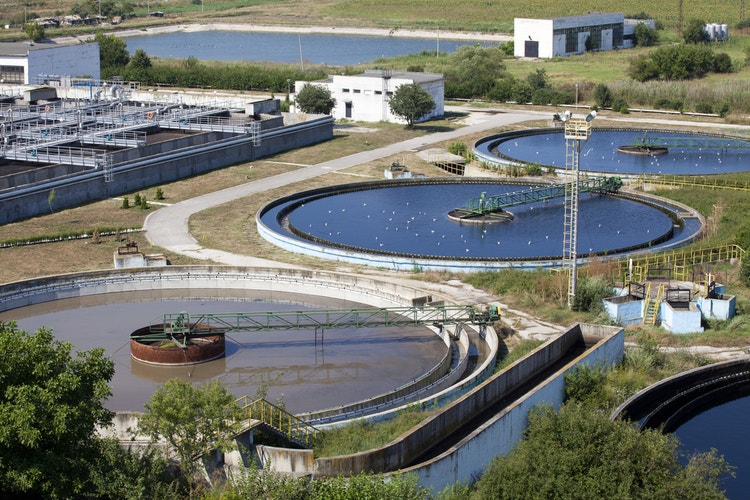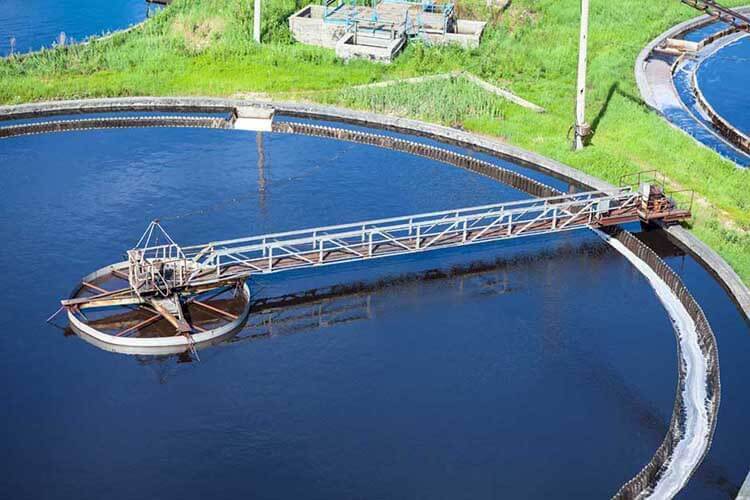Discovering Water Technology Startups: Exactly How They Transform Sustainable Solutions
Water Technology start-ups are arising as essential gamers in the pursuit for lasting options to global water issues. These firms take advantage of innovative innovations to improve water performance and administration. Their contributions resolve pushing challenges such as scarcity and contamination. Regardless of their potential, they encounter different barriers that can impact their success. Recognizing these dynamics sheds light on the future of water sustainability and the function these startups may play in shaping it.
The Value of Water Technology in Today's Globe
As global water deficiency heightens, the importance of water Technology ends up being significantly obvious. Water Technology plays a crucial function in addressing the difficulties posed by boosting and diminishing freshwater sources need. It includes a wide variety of technologies, including sophisticated purification systems, wastewater therapy innovations, and smart irrigation options. These advancements not only improve the performance of water use but also advertise sustainable techniques throughout various markets, consisting of agriculture, industry, and metropolitan advancement.
The significance of water Technology expands beyond source monitoring. It cultivates resilience versus environment modification impacts, such as dry spells and floods, by supplying flexible remedies for water preservation and monitoring. In addition, it sustains public health by making sure accessibility to tidy and risk-free drinking water. As the world encounters expanding water-related difficulties, the combination of innovative water modern technologies is important for cultivating lasting growth and protecting water accessibility for future generations.
Ingenious Solutions From Water Tech Startups
While conventional strategies to water monitoring have actually offered their purpose, a new age of water technology start-ups is transforming the industry with innovative remedies (Water Technology Startups). These firms take advantage of advanced technologies to address pressing water concerns, such as shortage, contamination, and inefficient circulation. Lots of startups make use of artificial knowledge and artificial intelligence to maximize water use and predict need, causing more sustainable techniques
Furthermore, numerous firms focus on establishing sophisticated filtration systems that eliminate pollutants and make water risk-free for consumption. Others discover decentralized water treatment technologies, permitting communities to handle their water resources better. Some start-ups are introducing smart irrigation options that reduce water waste in farming, advertising ecological conservation.
Situation Studies: Effective Water Technology Startups
Numerous water Technology startups have arised as leaders in resolving global water challenges with ingenious methods. One remarkable instance is Xylem, which concentrates on water analytics and clever facilities to enhance water use and lower waste. Their solutions have been executed in different communities, showing significant enhancements in water administration effectiveness.
One more successful startup, Zero Mass Water, has established solar-powered hydropanels that draw out water vapor from the air, supplying lasting drinking water in dry regions. Water Technology Startups. This Technology has been deployed in several countries, ensuring communities have accessibility to tidy water
AquaVenture Holdings operates a diverse profile of water-as-a-service remedies, attending to water shortage through desalination and wastewater treatment. Their tasks have actually verified crucial in areas dealing with severe water scarcities, showcasing the possibility of ingenious water modern technologies to develop lasting, favorable effects. These situation studies highlight the transformative possibility of startups in the water Technology sector.
The Duty of Smart Technology in Water Administration
Smart Technology plays a necessary role in modern-day water administration by leveraging IoT applications to optimize resource use. Data analytics boosts effectiveness by providing workable insights, while remote surveillance options enable real-time oversight of water supply. Together, these technologies transform just how water is handled, promoting sustainability and functional effectiveness.
IoT Applications in Water
As water deficiency and management difficulties magnify around the world, the combination of Internet of Points (IoT) applications has become a pivotal option in maximizing water resources. IoT Technology assists in real-time tracking and evaluation of water systems, allowing extra efficient use and monitoring. Sensors released in various water facilities can track top quality, circulation rates, and leakage, supplying important information to stakeholders. This information empowers customers and energies to make informed choices, reducing waste and enhancing preservation initiatives. In addition, smart irrigation systems use IoT to maximize water delivery for agriculture, making sure that plants obtain the right amount of water at the correct time. On the whole, IoT applications are transforming standard water management practices, promoting sustainability and durability why not find out more in water source systems.
Information Analytics for Efficiency
Harnessing data analytics is necessary for boosting performance in water monitoring. Water Technology startups are increasingly utilizing advanced analytics to optimize resource allocation and reduce waste. By evaluating data from different resources, these startups can identify patterns and patterns that educate far better decision-making. Anticipating analytics can anticipate water demand, allowing energies to change supply appropriately, thereby minimizing shortages and surpluses. Furthermore, real-time information handling allows the immediate discovery of leakages and inadequacies within distribution systems, significantly reducing functional expenses. Data-driven insights encourage stakeholders to apply targeted preservation strategies, cultivating sustainable techniques. Essentially, incorporating data analytics into water monitoring not only simplifies operations yet likewise advertises long-lasting sustainability in water source use.
Remote Monitoring Solutions
While standard water management systems usually fight with inefficiencies, remote tracking solutions are changing how water sources are taken care of. These ingenious modern technologies enable real-time information collection and analysis, enabling stakeholders to monitor water high quality, circulation prices, and usage patterns from afar. Using sensing units and IoT gadgets, remote surveillance offers prompt insights that help with aggressive decision-making. This change not only enhances functional effectiveness however also promotes sustainability by lowering water waste and optimizing resource allowance. In addition, remote monitoring systems can determine possible issues before they intensify, therefore minimizing the risk of contamination or facilities failure. As water Technology start-ups remain to develop these services, the market is poised for considerable innovations in lasting water monitoring practices.
Difficulties Dealing With Water Technology Startups
Water Technology startups come across considerable difficulties that can impede their development and success. Trick concerns consist of safeguarding ample financing, steering with complicated governing settings, and completing in a congested market. These challenges need tactical planning and development to conquer.
Funding and Investment Challenges
Technology in water Technology holds enormous capacity for addressing international difficulties, startups in this field commonly deal with considerable funding and financial investment obstacles. Many capitalists stay cautious, regarding the water market as high-risk as a result of its complicated governing landscape and lengthy development timelines. In addition, startups often battle to demonstrate prompt success, which can deter prospective backers. Traditional financial backing may ignore water technology, preferring sectors with quicker returns, click for source such as technology or durable goods. Securing gives and federal government funding can be lengthy and affordable, more complicating monetary security. Because of this, many innovative water Technology start-ups locate themselves in a precarious setting, needing imaginative funding approaches to navigate these monetary barriers and attain their objectives
Regulatory Compliance Issues
Steering regulative conformity is a significant difficulty for startups in the water Technology market, as they have to grapple with a myriad of regional, national, and international policies. These guidelines often encompass water high quality requirements, ecological protection laws, and safety and security protocols, which can vary widely across jurisdictions. Start-ups may discover it tough to browse this facility landscape, specifically when scaling procedures or getting in brand-new markets. The prices connected with conformity can be significant, drawing away sources far from advancement and item growth. Furthermore, hold-ups in acquiring required licenses or qualifications can impede growth and market entrance. A durable understanding of regulative frameworks is essential for these start-ups to assure lasting operations and stay clear of possible legal repercussions.
Market Competitors Dynamics
As water Technology startups emerge in an affordable landscape, they deal with numerous obstacles that can hamper their growth and technology. Developed business frequently control the marketplace, leveraging resources and experience to keep their settings. Start-ups have problem with restricted funding, which restricts r & d capabilities, making it tough to complete on Technology and pricing. In addition, the quickly evolving nature of water modern technologies demands consistent adjustment, further stressing startup sources. Regulatory difficulties can complicate market entrance, as conformity with ecological standards is essential yet expensive. Attracting proficient talent in a specific niche area presents another barrier, as larger firms may supply more appealing employment plans. These factors create a complex environment for water Technology startups aiming to prosper.
The Future of Water Technology and Sustainability

The future of water Technology will likely concentrate on incorporating man-made intelligence and data analytics to maximize water distribution and usage patterns. By harnessing real-time information, business can predict scarcities and handle resources extra successfully. Furthermore, sustainable techniques will certainly become a keystone of the market, encouraging round economies where water is recycled and treated. Inevitably, the continued evolution of water Technology will certainly be vital in producing resilient facilities efficient in fulfilling the challenges positioned by climate modification and population growth while advertising environmental stewardship.
Often Asked Inquiries
What Are the Secret Metrics for Reviewing Water Technology Startups?
Key metrics for assessing water Technology startups consist of market potential, scalability, client procurement costs, profits development, technology advancement, governing compliance, environmental effect, affordable advantage, and team experience, all vital for establishing long-term feasibility and success.
Just How Can Individuals Support Water Technology Innovations?
Individuals can sustain water Technology advancements by buying startups, advocating for policy modifications, getting involved in neighborhood efforts, sharing knowledge concerning lasting practices, and advertising awareness of water problems with neighborhood events and social media.
What Prevail Funding Sources for Water Tech Startups?
Typical funding sources for water tech startups include equity capital, government grants, crowdfunding platforms, angel financiers, and business partnerships. These monetary opportunities help facilitate development and development in sustainable water management technologies.

Which Industries Benefit Many From Water Technology Advancements?
Industries such as agriculture, power, production, and local services benefit substantially from water Technology advancements. These technologies boost water effectiveness, decrease costs, and advertise sustainable practices, inevitably adding to environmental preservation and source administration.
Are There Any Kind Of Regulative Challenges Details to Water Innovation?
Yes, water Technology faces governing difficulties, including conformity with environmental standards, allowing processes, and differing regional laws. These complexities can prevent development and reduce the application of new modern technologies in the water administration field.
Water Technology startups are arising as vital players in the mission for lasting services to international water problems. As global water shortage magnifies, the importance of water Technology becomes significantly apparent. i loved this Others discover decentralized water treatment innovations, permitting communities to handle their water resources much more properly. Another effective start-up, Zero Mass Water, has created solar-powered hydropanels that extract water vapor from the air, offering lasting alcohol consumption water in arid areas. Their jobs have verified essential in regions dealing with extreme water scarcities, showcasing the potential of ingenious water modern technologies to develop long lasting, positive effects.